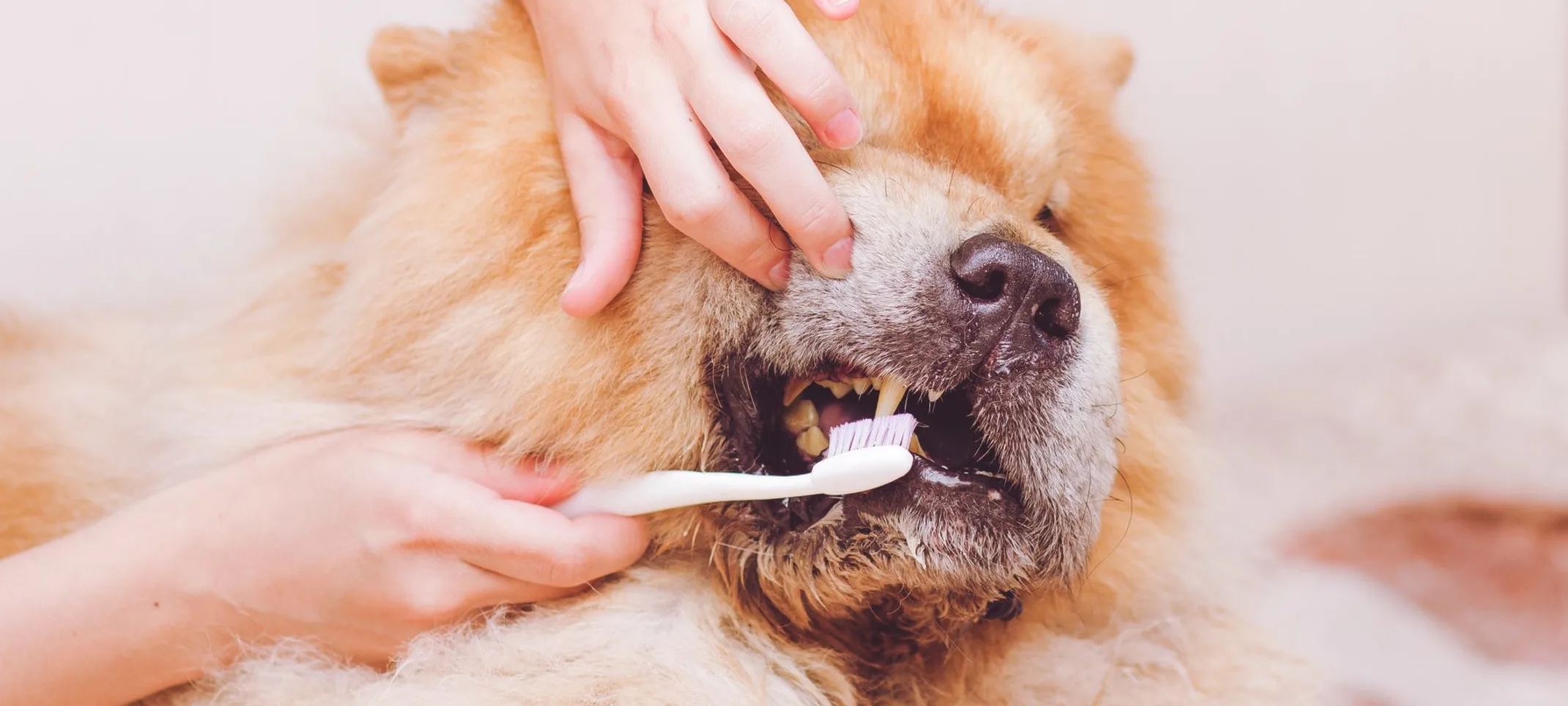New Baltimore Animal Hospital
Dental Disease
How do you think your smile would look if you never brushed your teeth? What about the smell? And even worse, how do you think it would feel? If you have ever had a toothache, you can only begin to imagine what it is like to have severe periodontal disease.

Overview
Studies show that 50% of all dogs and cats have some form of periodontal disease. That number jumps to 80% in pets that are 3 years of age or older. Plaque, tartar, periodontal disease, and infected teeth serve as a source of inflammation and infection for the rest of the body and can lead to disease of other organs including the heart, kidneys, and liver.
The most important thing you can do for your dog or cat’s oral preventative care is brush their teeth. Daily. There are different types of toothbrushes available and toothpaste in flavors like tuna and chicken. If brushing is not possible, there are oral rinses and dental diets. Be careful with hard bones and antlers for your dog, as they are a major cause of fractured teeth. Dental treats are ok in moderation, just make sure they are chewing them well, because they are just empty calories if pets just swallow them whole! When shopping for dental products, make sure they are VOHC approved.
Our veterinarians will evaluate your pet’s oral hygiene with every exam. If tartar and periodontal disease are present, they will recommend a Comprehensive Oral Health Assessment and Treatment (COHAT). These procedures are very similar to human dental cleanings, except that our patients are anesthetized in order to properly and safely examine and clean the teeth. After the cleaning, our veterinarians perform a thorough oral exam and check for signs of disease like gingival recession, loose teeth, and infection. Digital dental radiographs (x-rays) allow our veterinarians to evaluate the roots of the teeth, the integrity of the jaw, and any disease located below the gum line that is not visible on physical examination alone.
After the mouth is cleaned and evaluated, the veterinarian may prescribe antibiotics and regular at home dental care. In many circumstances, however, periodontal disease is so advanced that medical treatment is not enough and teeth must be extracted. Many teeth require oral surgery to safely remove each individual root. Our veterinarians have extensive training and experience with these procedures. To keep your pet as comfortable as possible, local anesthetics and pain medications are administered before, during, and after surgery and will be prescribed to go home with your pet as well.
